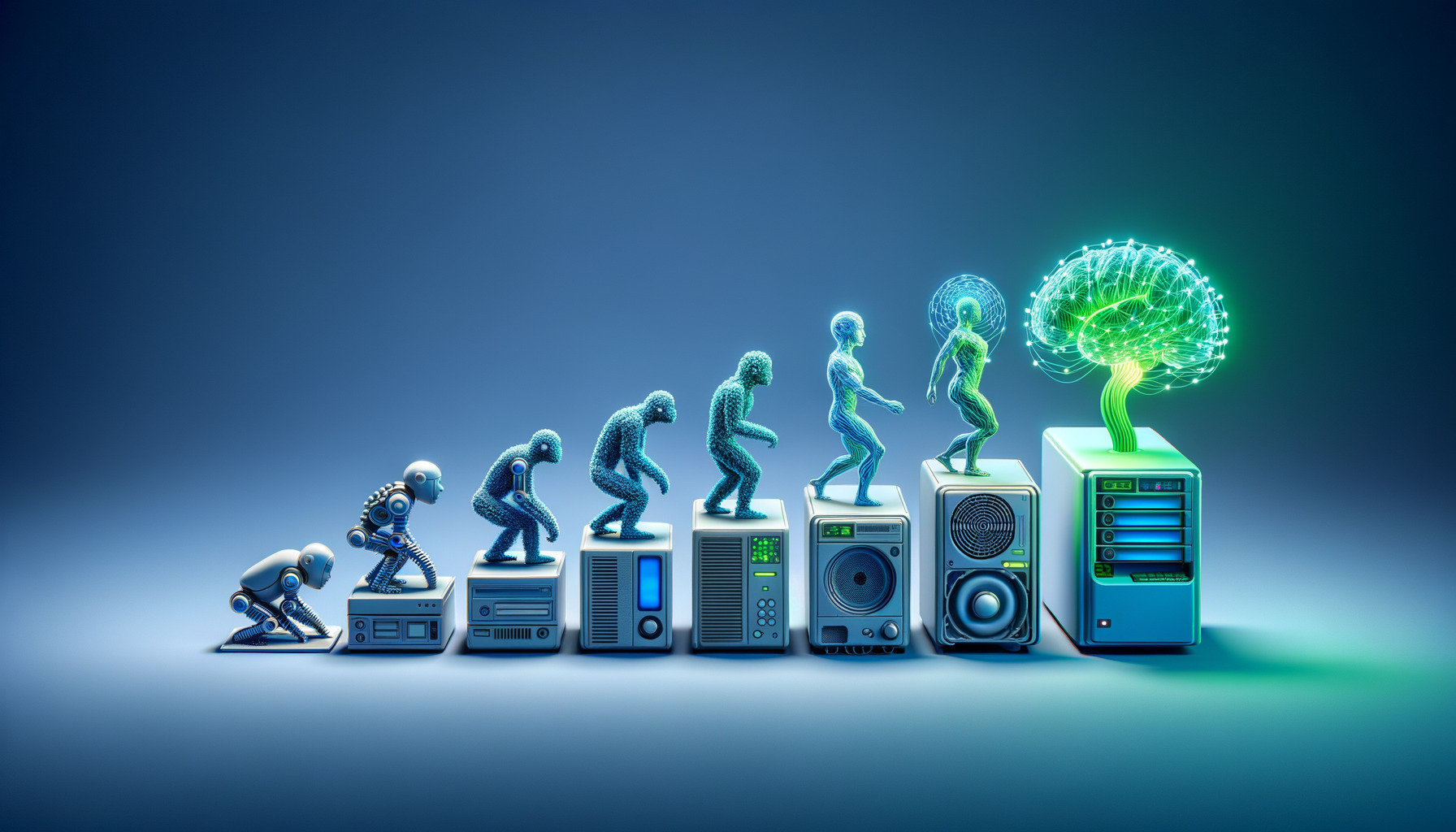Index
07 August 2024
General artificial intelligence: the future now

The evolution of generalartificial intelligence is revolutionizing the way we interact with technology. In this article, we will explore the predictions for the next decade regardingartificial intelligence and its advancements. We will uncover the potential of quantum AI and the social and ethical impacts this technology could have. The goal is to provide the reader with a comprehensive overview of howartificial intelligence will affect our future.
The evolution of general artificial intelligence
The evolution ofgeneral artificial intelligence has led to significant technological advances that have revolutionized several fields, such as medicine, industrial automation, and the transportation sector. Thanks to the potential ofgeneral AI, it is now possible to develop algorithms that can analyze large amounts of data in real time, enabling more accurate and timely diagnoses, optimizing production processes and improving safety in transportation.
In addition,general AI is opening up new opportunities in the field of scientific research, enabling the analysis and better understanding of complex phenomena such as climate change or galaxy formation. These applications are just some of the many possibilities offered by the evolution ofgeneral AI, which promises to revolutionize more and more fields in the coming years.
The prospects of quantum AI
Quantum AI represents one of the most promising prospects in the field ofartificial intelligence. With the ability to process huge amounts of data in a very short period of time,quantum AI could revolutionize areas such as cryptography, enabling the creation of virtually inviolable cybersecurity systems. In addition,quantum AI could be used to optimize financial transactions and to develop new, more effective drugs because of its ability to simulate and analyze molecules extremely quickly and accurately. Other possible applications ofquantum AI include predicting urban traffic and financial flows, creating more efficient neural networks and simulating complex physical phenomena. Ultimately,quantum AI has enormous potential to improve people's daily lives and bring innovation to key sectors of the world economy.
Social impacts of artificial intelligence
The advent ofgeneral artificial intelligence (AI) andquantum AI promise to have a significant impact on society in the coming years. While on the one hand these technologies offer incredible opportunities in areas such as medicine, industry, and cybersecurity, they also raise concerns related to unemployment, privacy, and social equity.
For example, the large-scale introduction of automated systems could lead to a decrease in job opportunities for certain categories of people, creating economic and social disparities. In addition, the widespread use of AI could raise ethical issues regarding the accountability of decisions made by algorithms and autonomous robots.
From a privacy perspective, the extensive collection and analysis of personal data could put individual privacy at risk. These issues require a balanced approach that takes into account both the opportunities and risks associated with the evolution of AI.
In addition, it is essential to actively engage different societal stakeholders, including governments, businesses, and citizens, to ensure that the benefits of AI are equitably distributed and that measures are taken to mitigate negative impacts.
The ethical challenges of general AI
The ethical challenges associated with general artificial intelligence require a holistic approach to ensure that the benefits of this technology are equitably distributed and that measures are taken to mitigate negative impacts. One practical solution could be to promote the adoption of Open Source Artificial Intelligence models on Private Clouds, as suggested in our article "AiAbility: Open Source Artificial Intelligence Models on a Private Cloud ," so as to encourage the sharing and control of personal data by users. It is essential to actively involve various actors in society, including governments, companies, and citizens, to ensure proper ethical and technological regulation of AI.
In addition, it is important to invest in vocational training to prepare people for new job opportunities and mitigate the negative effects on unemployment. Finally, it is critical to develop clear and transparent regulations to govern the responsible use of automated systems, thereby addressing concerns about the accountability of decisions made by algorithms and autonomous robots. Concrete actions are needed to successfully address the ethical challenges of general AI and maximize its benefits for the benefit of society as a whole.
Future applications of quantum AI
The future applications of quantum AI are extremely promising and could revolutionize numerous fields, such as cybersecurity, scientific research and pharmaceutical development.
The exponential computing potential offered by quantum AI may lead to new discoveries and innovations never seen before, paving the way for more efficient and faster solutions to complex problems.
It is critical to keep a watchful eye on these technological developments and take a proactive approach to the regulation and responsible use of these tools. As suggested earlier, engaging various societal stakeholders is crucial to ensure that quantum AI is exploited ethically and equitably, maximizing its benefits for the advancement of the entire community.
It is important to take seriously the ethical challenges associated with general artificial intelligence and quantum AI, as only by addressing them head-on can their positive impact on society be maximized.
Harness AI for your business
Rely on an AI Martech Company such as Zero11
Previous articles

artificial intelligence
AI, LLM, and Intelligent Agents: The Future of Integration with Quarkus
2/03/2025

Artificial Intelligence
Artificial Intelligence: Governance, Ethics, and Sustainability – An Open Debate
1/03/2025

CRM & Marketing Automation
CRM and Marketing Automation: the Essential Integration for 2025
18/02/2025